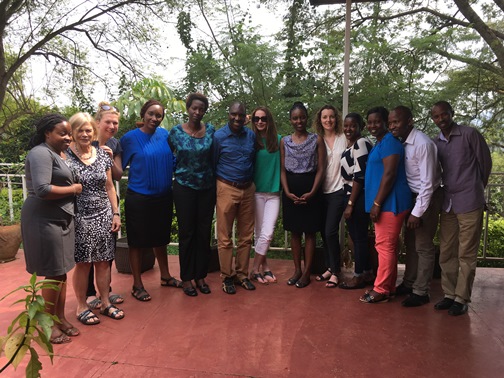Intergenerational Legacies of Genocide in Rwanda

Breaking the Cycle of Violence in Post-Conflict Settings: The Potential of Community-Based Socio-Therapy in Rwanda
Results of research conducted by the Netherlands Institute for the Study of Crime and Law Enforcement (NSCR) and the Community Based Sociotherapy Programme (CBSP), funded by NWO-WOTRO, Applied Research Fund of the Security and Rule of Law Programme.
In Rwanda, the 1994 genocide and its aftermath led to large-scale individual traumatisation, disruption of family structures, shifts in gender roles, increase in familial violence, and continuing tensions within communities. In the aftermath of the genocide, sociotherapy has been implemented in Rwanda to contribute to improving psychosocial wellbeing of individuals, enabling interpersonal reconciliation and strengthening social cohesion.
The research took a qualitative approach: semi-structured interviews within 41 households were held, mothers and their children were interviewed by a team of Rwandan interviewers, the data collection was coordinated by a Rwandan researcher. As many Rwandan households are female headed as a result of male imprisonment or death, we focused on mothers who experienced the genocide and their adolescent children, the second generation. The respondents in the study were sampled through the CBSP. We included a group of mothers who were going through (or had already gone through) the CBSP (N = 22), and a group of mothers who had not (yet) gone through the sociotherapy program (N = 19). Interviews were coded and analyzed by two researchers.
Findings showed direct and indirect pathways by which legacies of the genocide and its aftermath are transmitted to the second generation within families. Findings also showed that sociotherapy has the potential to address both direct and indirect pathways of intergenerational transmission through its intervention.
Read more about the research results of the WOTRO-project in this Factsheet:
[su_divider top="no" divider_color="#ededed" size="1"]
[wpdm_package id='3909']
[su_divider top="no" divider_color="#ededed" size="1"]
Share this article
Actuele berichten

